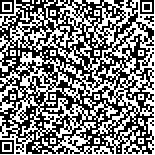| 摘要: |
| 针对以往制冷系统故障诊断需采用已知运行状态的有标签数据,导致大量无标签数据信息无法利用的问题,本文提出一种基于Tri-Training的制冷系统半监督故障诊断方法,改善制冷系统故障诊断性能。采用一台316 kW离心式冷水机组7类典型故障的实际数据对该诊断方法进行验证,结果表明:该方法具有有效性,挖掘无标签数据信息的Tri-Training半监督故障诊断模型相比支持向量机(SVM)、K近邻(KNN)、随机森林(RF)3种有监督诊断模型,性能显著提高,总体诊断正确率达到99.43%,对系统级故障的诊断正确率提升1.73%~3.90%,虚警率、漏报率、误报率均有不同程度改善。同时,表明该故障诊断模型中3个基分类器的故障诊断性能及其多样性是影响该模型对制冷系统中无标签数据利用的主要因素。 |
| 关键词: 制冷系统 故障诊断 半监督学习 Tri-Training 优化 |
| DOI: |
| Received:June 07, 2021Revised:December 17, 2021 |
| 基金项目:国家自然科学基金(51506125) |
|
| Semi-supervised Fault Diagnosis of Refrigeration System Based on Tri-Training |
|
Ren Zhengxiong1, Han Hua1, Cui Xiaoyu1, Lu Hailong1,2, Zhang Yunqian2
|
| (1.School of Energy and Power Engineering, University of Shanghai for Science and Technology;2.Chongqing Midea General Refrigeration Equipment Co., Ltd.) |
| Abstract: |
| A significant amount of unlabeled data are idle when labeled data with known operating statuses are used in the fault diagnosis of conventional refrigeration systems. Therefore, a semi-supervised fault diagnosis method is proposed in this study for refrigeration systems based on the Tri-Training method, which uses the information in unlabeled data to improve fault diagnosis performance. Seven typical faults in a 316 kW centrifugal chiller are used for verification, and the results show the effectiveness of the method. The semi-supervised fault diagnosis model based on Tri-Training can mine unlabeled data information and afford significantly improved performances compared with three typical supervised diagnosis models, i.e., support vector machines, K-nearest neighbor, and random forest. The overall diagnostic accuracy of the proposed system is 99.43%; meanwhile, the diagnosis accuracy of its system-level fault is higher by 1.73%–3.90%, and its false, neglectful, and wrong alarm rates are improved compared with those of the abovementioned three models. Meanwhile, the performance and diversity of the three initial classifiers in the fault diagnosis model are the main factors affecting the use of unlabeled data in refrigeration systems. |
| Key words: refrigeration system fault diagnosis semi-supervised learning Tri-Training optimization |


